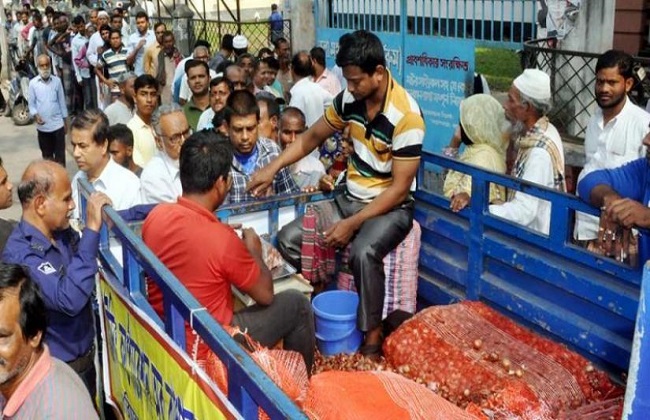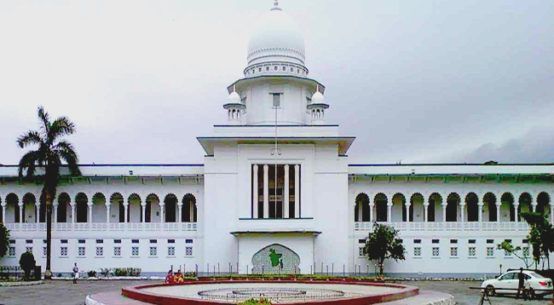
The number of beneficiaries of the open market sale (OMS) has risen significantly, as the Covid-19 pandemic is forcing more and more low-income group of people to buy commodities, sold at subsidised rates under the programme, officials said.
The state-owned Trading Corporation of Bangladesh (TCB) is now selling edible oil, sugar, gram, lentil, dates and onion through trucks and dealers in parts of the country. The agency sells these key commodities for keeping their prices within the purchasing power of commoners throughout the year.
As many as 1.9 million families and over 7.6 million people were benefited from the OMS programme as of December 2021, according to the Ministry of Commerce (MoC).
The OMS operation is helping to keep the prices of key essential items stable in the market, and offset the increased living cost of lower-income people, said the MoC officials.
The OMS programme is specially operated ahead of the holy month of Ramadan every year to stabilise the kitchen item prices as well as to keep market manipulators at bay.
“The TCB has taken necessary measures for ensuring adequate supply of the items in the market in the upcoming fasting month,” said an official, who deals with the OMS issue.
Currently, the government’s agencies concerned are closely monitoring supply and price movements of essentials, so that manipulators cannot create any artificial crisis in the kitchen market, according to the official.
Usually, the low-income people suffer a lot due to unusual hike in the prices of key items during Ramadan and Eid. The TCB primarily intervenes when prices of essential goods go up in the open market.
The government is supplying funds to purchase these commodities during the ongoing pandemic across the country. It has provided substantial subsidies, including interest, to the TCB to date, he added.
The government provided about Tk 3.76 billion as subsidies from financial year (FY) 2010-11 to FY 2015-16, according to the state entity.
However, experts do not want to give much credit to the TCB despite conducting OMS operation in the country, following ‘no or insignificant impact’ of its market intervention system.

